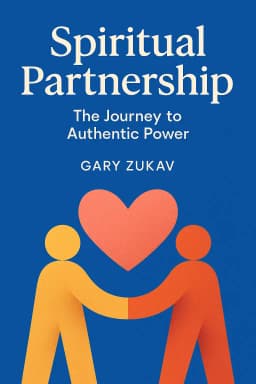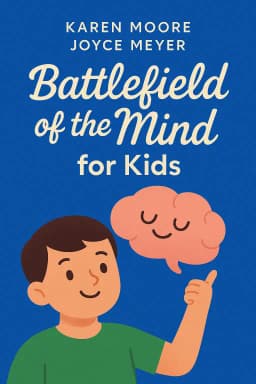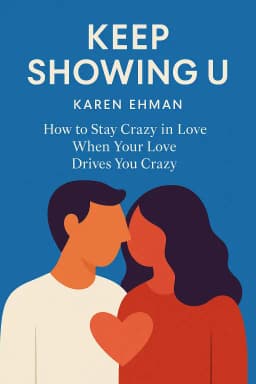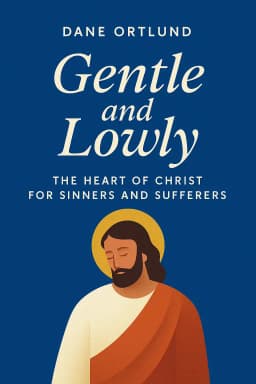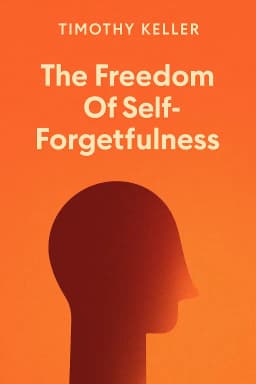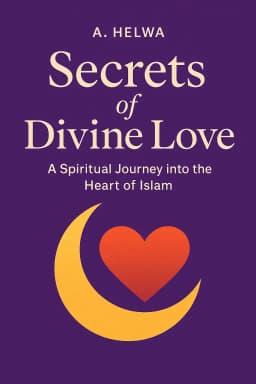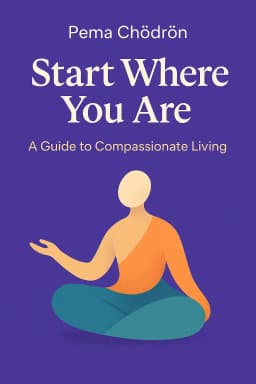
Decoding The Bible Recap
Golden Hook & Introduction
SECTION
Daniel: Most people who own a Bible don't read it. And for those who try, the number one reason they quit is the same book: Leviticus. It’s the graveyard of good intentions. But what if the problem isn't the book, but the user manual we were never given? Sophia: Oh, I know that feeling. It’s like you start a marathon with all this energy, and by mile three, which is definitely Leviticus with all its rules about skin diseases and sacrifices, you're just done. You think, "This isn't for me." Daniel: You’ve hit the nail on the head. That's the exact problem Tara-Leigh Cobble sets out to solve in her book, The Bible Recap Journal, and the whole ecosystem around it. What's fascinating is that she's not a seminary professor or a theologian with a long list of credentials. Sophia: Really? Who is she then? Daniel: She spent over a decade as a touring singer-songwriter. She openly admits that for years, she struggled with the exact same thing—getting lost, bored, and confused when she tried to read the Bible. She felt like she was missing the point. Sophia: I love that. So she's coming at it from the perspective of a regular person who felt stuck and then figured out a way to get unstuck? Daniel: Precisely. She basically reverse-engineered a solution for herself, and that personal solution has exploded into a cultural phenomenon. The accompanying podcast, which the journal is built around, has been downloaded nearly 350 million times. It’s consistently at the top of the religion charts, sometimes even surpassing the biggest mainstream shows. Sophia: Whoa. 350 million? That’s not just a successful podcast; that's a movement. It suggests she tapped into a need that is massive and unmet. Daniel: It absolutely is. And today, we're going to unpack the system she built and the philosophy behind it. It's a masterclass in making the inaccessible, accessible.
The 'Recap' Method: A System for Demystifying a Monumental Text
SECTION
Daniel: So let's start with the 'how.' The core of The Bible Recap isn't just a book you read; it's a complete system, a toolkit designed to guide you through the entire Bible in a year without getting lost in the weeds of Leviticus. Sophia: Okay, a 'system' sounds both promising and a little intimidating. What are the moving parts? Is this going to feel like homework? Daniel: That’s the key question, and she designed it to avoid that feeling. Think of it less like homework and more like a personal trainer for your spiritual life. There are a few core components that work together. First, there's the daily reading plan. And this is crucial: it's chronological. Sophia: Wait, hold on. What does 'chronological' actually mean here? I thought the Bible was already in order. You open it to page one, Genesis, and you go from there. Daniel: That's a common assumption! The books in a standard Bible are organized by genre—law, history, poetry, prophecy, letters—not by when the events actually happened. A chronological plan re-shuffles things. For example, you might read a chapter from a book of history, like 1 Kings, and then immediately read a Psalm that David wrote during the events you just read about. It weaves the story together in the order it unfolded. Sophia: Huh. That makes a lot of sense. It’s like watching the scenes of a movie in the right order instead of having all the flashbacks grouped together at the end. You get the emotional context in real-time. Daniel: Exactly. It turns it from a collection of documents into a single, unfolding narrative. So that's the first piece: the reading plan. The second piece is the journal we're discussing today, The Bible Recap Journal. It's a companion for you to use while you read, a space for your own thoughts and reflections. Sophia: So it’s not just passive consumption. You’re actively engaging with the text. Daniel: Right. And then comes the magic ingredient, the part that gives the whole thing its name: the daily podcast episode. After you do your reading for the day, you listen to an 8-10 minute podcast where Tara-Leigh Cobble recaps what you just read. She connects the dots, clarifies confusing parts, and points out things you might have missed. Sophia: Okay, I can see the appeal of that. It’s like having a guide who meets you at the end of the trail each day and says, "Okay, did you see that weird-looking tree? Here's what it is. Did you get confused by that fork in the road? Here's where it leads." Daniel: That's a perfect analogy. And she has a very specific goal with that recap. It's not just a summary. But we'll get to that in a minute. The final pieces are a daily study guide with more research-focused questions and a weekly discussion guide for small groups. So you have the individual experience and the community one. Sophia: That sounds incredibly thorough. It’s a multi-pronged attack on biblical confusion. But I have to ask again, does it risk turning something that’s meant to be spiritual and personal into a giant, color-coded to-do list? Read, journal, listen, discuss... it feels a bit... corporate. Daniel: I see why you'd say that. But the way it's presented is more like a support system. You can use all the pieces, or just the ones that work for you. The author herself says the variety is intentional, to "connect with and challenge all types of readers." Some people are auditory learners, so the podcast is key. Others are reflective, so the journal is their main tool. It’s a buffet, not a required five-course meal. Sophia: That makes sense. It’s about providing multiple entry points. So what was the origin of this whole method? Did she just wake up one day with this five-part plan? Daniel: Not at all. It came from her own frustration. The story she tells is that she was complaining to a pastor friend that the Bible was confusing and she wasn't getting anything out of it. The pastor gave her some transformative advice. He said, "Read it straight through, chronologically. And as you read, stop looking for yourself. Instead, look for God. Treat it like a treasure hunt to find His character on every page." Sophia: Wow. 'Stop looking for yourself.' That one line is a paradigm shift. Most of the time, when people read self-help or spiritual texts, the first question is, "How does this apply to me?" Daniel: Precisely. She says that advice changed everything. Suddenly, the Bible wasn't a rulebook or a self-help manual; it was a story about someone she wanted to get to know. The confusion started to lift, and she found joy in it. The entire Bible Recap system is basically her attempt to scale that personal breakthrough experience for everyone else. Sophia: So the system isn't just about information transfer. It’s about engineering a specific kind of experience—an experience of discovery rather than duty. Daniel: You've got it. It’s a framework designed to produce a specific outcome: clarity and connection, not just completion.
From Confusion to Clarity: The Relational Approach to Scripture
SECTION
Sophia: Okay, so the 'how' is this really well-designed, multi-layered system. But that brings us to the 'what.' What are you actually looking for on this treasure hunt? Reading chronologically is one thing, but if you don't know what to look for, you can still get lost. Daniel: This is the heart of her philosophy and the second core idea. The goal is to read the Bible not as a book of rules, or a history textbook, or even a collection of inspirational quotes. The goal is to read it as a unified story that is, from start to finish, revealing the character of God. Sophia: A story about God, not a manual for humans. That’s a subtle but powerful distinction. How does that play out in the daily recaps? Daniel: At the end of every single podcast episode, she has a segment called "The God Shot." It's the main takeaway for the day. But the takeaway is never "Here's what you should do." It's always "Here's who God was in what you read today." It might be about His patience, His justice, His creativity, His mysteriousness. It constantly re-centers the narrative on its main character. Sophia: I like that. It takes the pressure off the reader to immediately find a personal application, which can sometimes feel forced. Instead, you're just getting to know someone. Daniel: Exactly. And this lens leads to some profound shifts in understanding. For example, Cobble talks about her own 'aha' moment when reading Genesis 1, one of the most familiar chapters in the Bible. In verse 26, God says, "Let us make man in our image." Sophia: Right, the plural. I’ve always heard that pointed out. Daniel: But for her, reading with this new lens, it was a lightning bolt. She realized the concept of the Trinity—a relational God of Father, Son, and Spirit—was present on page one. It wasn't some complicated doctrine invented thousands of years later in the New Testament. Jesus wasn't a surprise add-on; He was there, in the "us," from the very beginning. That reframed the entire Old Testament for her. It wasn't just a prequel; it was part one of the same story with the same main character. Sophia: That’s a powerful way to look at it. It makes the whole book feel more cohesive. But this is also where some of the controversy comes in, isn't it? This accessible, relational style. Daniel: It is. The book and podcast have received overwhelmingly positive reviews from readers. People say it's changed their lives, that they finally understand the Bible. But there is a stream of criticism, and it tends to focus on two things. First, the informal tone. Sophia: I’ve heard about this. She uses nicknames for biblical figures? Daniel: She does. John the Baptist becomes "JTB." Jeroboam becomes "Jerry." To her fans, this makes the characters feel relatable and less like stuffy historical figures. To her critics, it can feel flippant or disrespectful. Sophia: I can see both sides of that. It feels like a stylistic choice that’s either going to really work for you or really not. What’s the other main criticism? Daniel: The other, more substantive critique, is about her credentials. As we said, she doesn't have a formal degree in theology or biblical studies. Some reviewers, particularly those with academic backgrounds, have pointed out what they see as occasional misinterpretations or theological oversimplifications. They argue that in the process of making things accessible, some of the nuance and complexity gets lost. Sophia: So, does that matter? If millions of people are engaging with the Bible for the first time and finding joy in it, does it matter if the guide isn't a formally trained scholar? Daniel: That is the central question, and I think it's a debate about purpose. Is the goal perfect, academic, theological exegesis? Or is the goal mass biblical literacy and engagement? The Bible Recap is unapologetically aimed at the second goal. The author herself says the guides are designed to "connect with and challenge all types of readers," not just scholars. Sophia: It's a classic trade-off: depth versus breadth. You can have a guide that is 100% technically accurate but speaks to only a few thousand academics, or a guide that is maybe 95% accurate but speaks to tens of millions of people. Daniel: Exactly. The informal tone and the relational focus are features, not bugs. They are deliberate choices designed to lower the barrier to entry for people who have been intimidated or alienated by a more academic approach to faith. The book avoids getting bogged down in divisive theological debates to keep the focus on the main narrative. For someone seeking a deep, scholarly commentary, this isn't the right tool. But for its intended audience, it’s a gateway. Sophia: It sounds like she knew exactly who she was trying to reach and optimized everything for them, even if it meant alienating a different audience. That's a mark of a clear vision. Daniel: I think so. She’s not trying to be a seminary professor. She's trying to be the friendly, knowledgeable guide on a treasure hunt, just like that pastor encouraged her to be.
Synthesis & Takeaways
SECTION
Daniel: When you pull back and look at the whole picture, the phenomenon of The Bible Recap is so much more than just a popular book or podcast. It's a powerful signal. It reveals a massive, widespread hunger for understanding this ancient text. Sophia: But at the same time, it reveals a deep frustration with the traditional ways of approaching it. People clearly want the substance, but the delivery system has been failing them. Daniel: That’s it exactly. Cobble’s success comes from creating a new delivery system. It’s structured, supportive, and relational. It gives people a pathway, a 'way in' to a book that often feels like a fortress with no visible door. Sophia: So it’s less about her providing all the 'right' answers and more about her providing a map and a compass so people can find the answers for themselves. Daniel: Yes. It’s a framework for personal discovery. Her incredible success suggests that millions of people prefer a relatable, enthusiastic guide on a treasure hunt over a stern lecturer in a classroom. The trade-off might be some of the finer points of theological nuance, but the gain is mass engagement with a story people are clearly desperate to connect with. Sophia: It really leaves you with a fascinating question, doesn't it? Is it better for millions of people to engage with a foundational text imperfectly, or for only a few to engage with it perfectly? There’s no easy answer to that. Daniel: There isn't. It highlights a fundamental tension in how we share important knowledge. And it’s a conversation worth having. Sophia: Absolutely. We'd actually love to hear what our listeners think about this. Is accessibility more important than academic precision when it comes to texts like this? Find us on our socials and let us know your take. Daniel: This is Aibrary, signing off.
